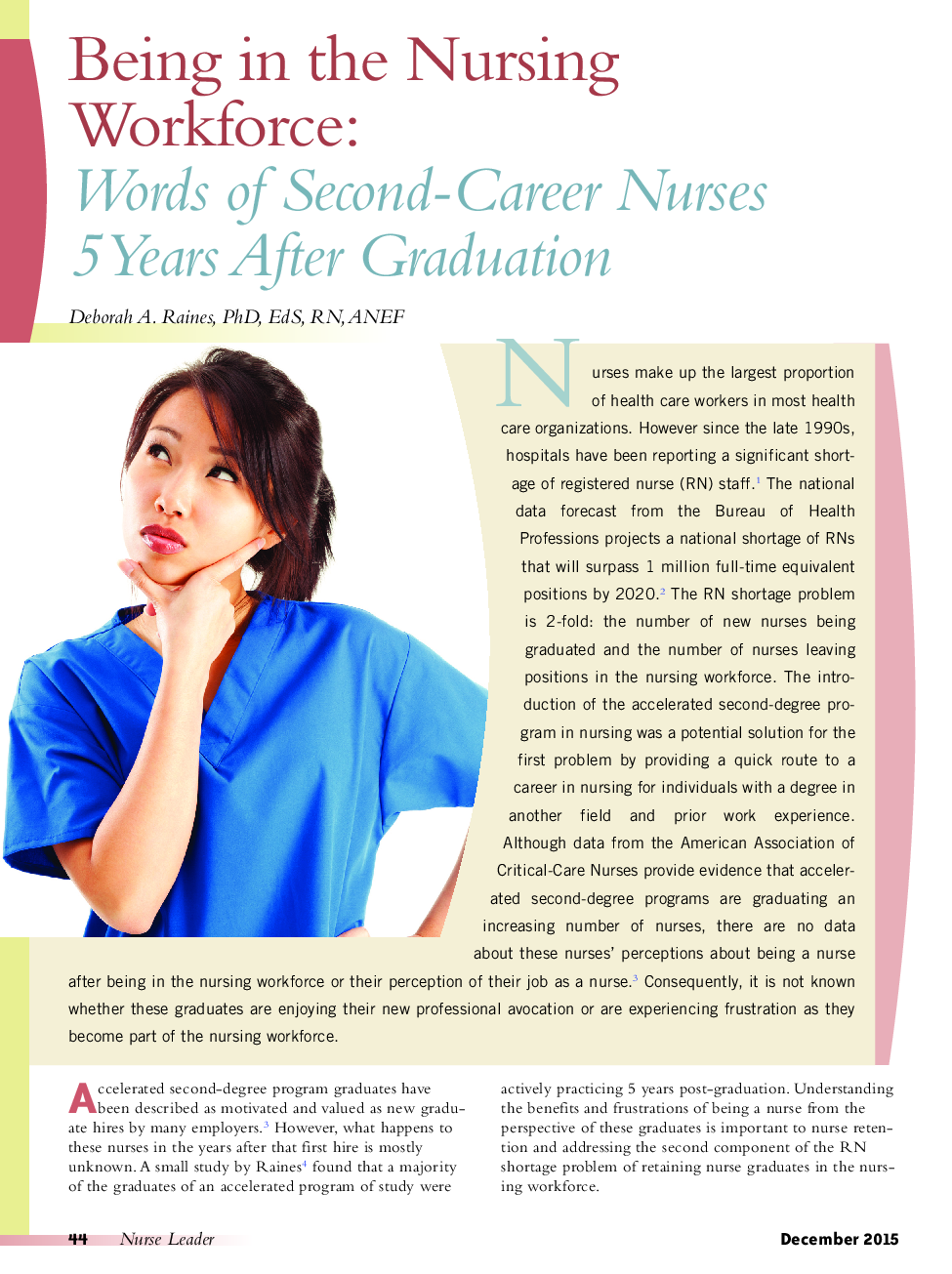| Article ID | Journal | Published Year | Pages | File Type |
|---|---|---|---|---|
| 2676521 | Nurse Leader | 2015 | 8 Pages |
Nurses make up the largest proportion of health care workers in most health care organizations. However since the late 1990s, hospitals have been reporting a significant shortage of registered nurse (RN) staff.1 The national data forecast from the Bureau of Health Professions projects a national shortage of RNs that will surpass 1 million full-time equivalent positions by 2020.2 The RN shortage problem is 2-fold: the number of new nurses being graduated and the number of nurses leaving positions in the nursing workforce. The introduction of the accelerated second-degree program in nursing was a potential solution for the first problem by providing a quick route to a career in nursing for individuals with a degree in another field and prior work experience. Although data from the American Association of Critical-Care Nurses provide evidence that accelerated second-degree programs are graduating an increasing number of nurses, there are no data about these nurses’ perceptions about being a nurse after being in the nursing workforce or their perception of their job as a nurse.3 Consequently, it is not known whether these graduates are enjoying their new professional avocation or are experiencing frustration as they become part of the nursing workforce.
